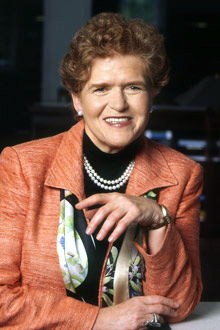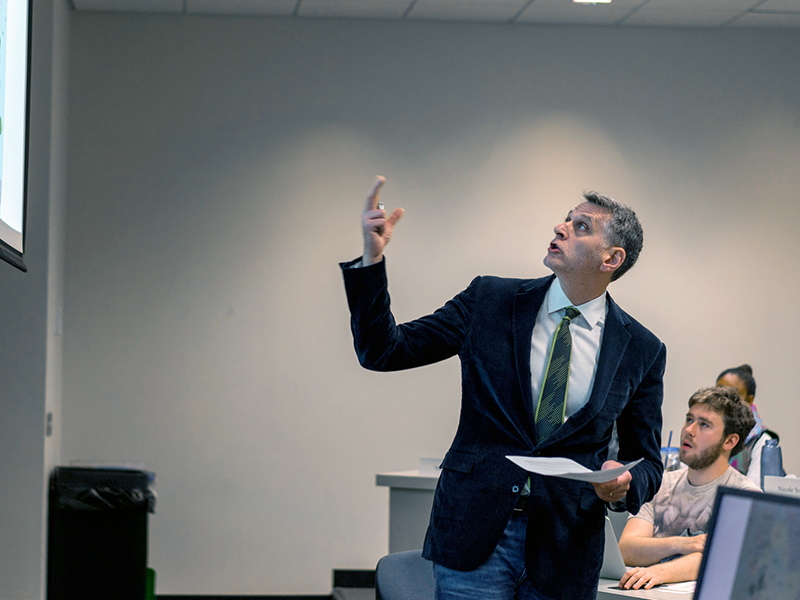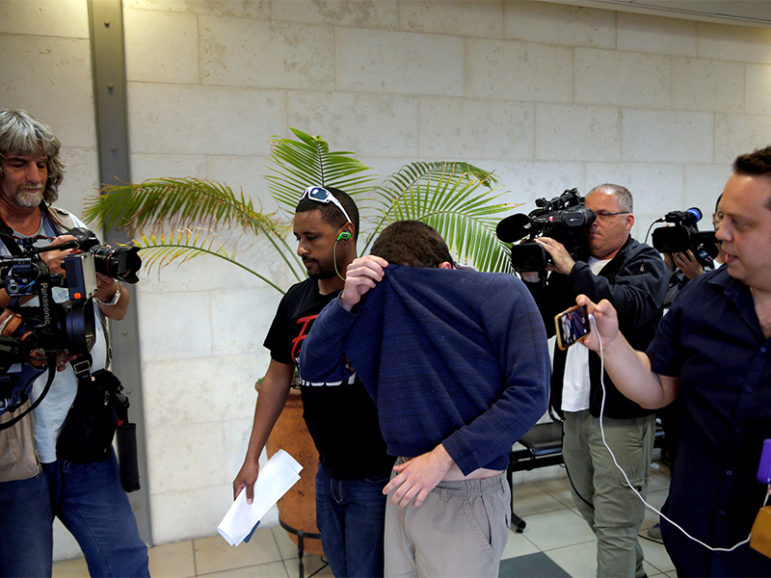(RNS) Jews worldwide uttered a collective gasp when they found out the suspect allegedly behind more than 100 bomb threat hoaxes at Jewish institutions across North America is Jewish himself.
“Stunned,” said Michael Feinstein, who heads a Maryland Jewish community center that received two threats since the beginning of the year.
“Stunned,” said Rabbi Steve Gutow, the immediate past president of the Jewish Council for Public Afffairs.
“I don’t know if it would be better if we found out if it was a right-wing white supremacist, neo-Nazi or follower of ISIS,” said Deborah Lipstadt, who studies anti-Semitism at Emory University.
Law enforcement reported Thursday (March 23) that the person behind the majority of threats roiling Jewish communities across the U.S. and Canada since Jan. 9 sent them from his home in Israel. He is reportedly an Israeli-American teenager.
[ad number=“1”]
His Jewishness “raises a whole lot of questions about the assumptions we’re making,” said Feinstein. “I’m still trying to process this.”
It was unsettling for many Jews to find out that a fellow Jew, and one living in a country founded as a sanctuary for his people after the Holocaust, would seek to spread panic among his own kind.
The threats prompted scores of evacuations and reduced the rolls of Jewish nursery schools. Jewish institutions stretched their budgets to tighten security. Fears mounted that vital Jewish institutions would lose clientele well into the future.
Now many worry that the suspect’s identity will lend credence to anti-Semites’ common claim that Jews exaggerate threats and crimes against them, and undercut efforts to counter anti-Semitism at a time when FBI and other statistics show it rising in the U.S. and abroad.

Deborah Lipstadt. Photo courtesy of Emory University
“There is anti-Semitism on the left. And there’s anti-Semitism on the right. We’ve seen it documented,” Lipstadt said. “The antics of one sick, malicious young man should not be used to make a case one way or the other.”
This would not be the first time a Jewish person has turned against his own people, Lipstadt continued, adding that the phenomenon is by no means limited to Jews. What’s crucial, she said, is not to draw conclusions about anti-Semitism or racism from the unusual incidents in which Jews target Jews or blacks target blacks. “I wouldn’t build a case on it.”
The arrest of the suspect is also prompting some — both supporters and critics of President Trump — to revisit the president’s treatment of the threats against Jewish institutions in past months. Critics took issue with Trump’s reluctance to publicly address the threats, which came in six waves, and call out anti-Semites among his supporters.
And Trump’s cryptic comment last month that the threats against Jewish institutions were “the reverse” puzzled many American Jews and angered others.
[ad number=“2”]
It suggested to some that the president was blaming the Jews for raising “false flags” about the threats, a charge of anti-Semites throughout history who blamed Jews for their own persecution.
With hindsight, some are wondering if Trump knew at the time that law enforcement was pursuing a Jewish suspect, and that the “reverse” meant “not the suspect that many people imagine.”
But Jewish civil rights and other groups made it clear after news broke of the suspect’s arrest that anti-Semitism is still anti-Semitism — no matter its source.
“While the details of this crime remain unclear, the impact of this individual’s actions is crystal clear: These were acts of anti-Semitism,” reads the statement from the Anti-Defamation League. “These threats targeted Jewish institutions, were calculated to sow fear and anxiety, and put the entire Jewish community on high alert.”
[ad number=“3”]
The Jewish Community Centers of North America said in its statement: “We are troubled to learn that the individual suspected of making these threats against Jewish Community Centers, which play a central role in the Jewish community, as well as serve as inclusive and welcoming places for all — is reportedly Jewish.”
Thursday’s arrest was not the first in the case, and the suspect in Israel is not thought to be responsible for all of the more than 160 bomb threats called and emailed into Jewish institutions in North America since January. A federal judge earlier this month charged a St. Louis man, who is not Jewish, with making threats against eight Jewish community centers across the country as part of a scheme to harass a former girlfriend.
The suspect arrested this week has prompted some discussion about self-hatred among Jews.
“There are certainly a lot of Jews who do not feel positive about Jews,” said Gutow, now a visiting scholar at New York University working on interfaith projects.

Rabbi Steve Gutow of the Jewish Council for Public Affairs in Washington, D.C., on March 10, 2013. Photo courtesy of Creative Commons/Risdon Photography
It may be that the suspect took such negative feelings to extremes, he said of the young man in Israeli custody, who is also accused of making threats against institutions in Europe, Australia and New Zealand.
Gutow nevertheless hopes the arrest will spark conversations within the Jewish community about respect for other Jews. On both sides of the political spectrum, he said, Jews have too often lately treated each other with disdain.
“Dybbuk,” a malicious spirit in Jewish lore, and “capo,” a Jew appointed by Nazis to oversee other Jews in the concentration camps, are just two of the words he has heard Jews level at each other during recent political debates.
Jacques Berlinerblau, who teaches Jewish history at Georgetown University, said a fictional self-hating Jew came to mind when he heard the suspect was Jewish.
“It’s as if a character wandered out of a Philip Roth novel,” said Berlinerblau, who teaches the works of the modern American Jewish author.

Jacques Berlinerblau teaches at Georgetown University on Nov. 10, 2016. Photo courtesy of Jacques Berlinerblau
He was thinking of one character in particular in Roth’s novel “The Counterlife” — Jimmy Ben-Joseph, a demented Jewish man who thinks Jews will only be accepted in the wider world if they abandon Israel and forget about the Holocaust. He tries to blow up an Israeli airliner.
“We definitely should not feel better if he is Jewish,” Berlinerblau said of the suspect. “Judaism does not insulate you from madness. Most American Jews understand that.”
And no one should think that his Jewishness means the uptick in anti-Semitism in this country is not real, Berlinerblau stressed. He cited recent attacks on Jewish cemeteries and the harassment of Jewish journalists.
“Jews are far more on guard than any moment I can remember in my lifetime,” said Berlinerblau, who is 50, “and with good reason.”





